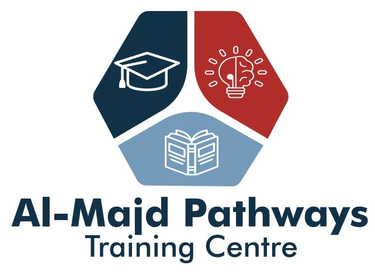
Due Diligence: Assessing and Managing Prospective Investors and Collaborative Partners in the Oil and Gas Industry
£14800.00£12600.00
Introduction
This course focuses on Due Diligence focuses on one of the most critical tasks in the oil and gas industry's development – the thorough examination and evaluation of potential investors and partners. The oil and gas sector has become increasingly intricate in terms of its structure, technology, competition, and strategic options. Consequently, an organisation's interactions with potential investors and partners now demand a significantly higher level of scrutiny and attention than in the past. This comprehensive course will concentrate on the application of cutting-edge tools and techniques of due diligence in establishing effective relationships with these two strategically significant stakeholder groups.
Due Diligence is Multi-Dimensional
It involves understanding the needs and objectives of potential investors and partners.
Understanding their decision-making criteria.
Assessing their alignment with our own company's strategic and operational goals.
Requires a structured approach to effectively attract and integrate new investors and partners.
Ensuring continuous improvement in the company's profitable growth.
Key Areas Covered
Evolving dynamics in the global oil and gas industry
Due diligence in the financial assessment of prospective investors and partners
Due diligence in the non-financial assessment of prospective investors and partners
Unique challenges of forming alliances and joint ventures
Best practices for managing investor and partner relationships
Course Objectives
Upon completing this Due Diligence: Assessment and Management of Prospective Investors and Collaborators training course, you will be able to:
Identify the specific characteristics of potential investors and partners
Evaluate the historical performance and future potential of potential investors and partners
Select and engage with prospective investors and partners
Anticipate and address the challenges of integrating prospective investors and partners
Assess the strategic impact of establishing new relationships
Training Approach
The training process incorporates a carefully planned blend of highly focused inputs from the Course leader, utilising a balanced set of state-of-the-art presentation tools.
Emphasis on learning through the analysis of major decisions where the use of best practice due diligence principles has been pivotal.
Principles and approaches to this subject will be elucidated through references to real-life organisations.
Delegates are encouraged to introduce topics for open discussion and creative thinking.
Training methods include presentations, group work, problem-solving exercises, interactive discussions, and creating individual and team plans.
Organisational Influence
By sending delegates to this Due Diligence: Assessment and Management of Prospective Investors and Collaborators training course, the company can expect to gain several advantages:
A more professional approach to assessing development opportunities
Integration of due diligence into decision-making across all domains
Increased confidence among top management in staff decisions
An innovative and adaptable approach to investor relations
Enhanced focus on the potential of partnerships, alliances, and joint ventures
Managers with a broader global outlook on investor/partner relationships
Personal Influence
Participating in this training course will empower delegates to acquire the following skills and competencies:
Expanding the limits of individual and team potential
Enhanced creativity in business development
In-depth knowledge of the tools and techniques of due diligence
Greater confidence in managing partnership relationships
Application of collaborative approaches to sustain profitable growth
Introduction of best practices in due diligence across all teams
Who Should Attend?
This Due Diligence: Assessment and Management of Prospective Investors and Collaborators training course is designed to be applicable to a wide range of experienced professionals, particularly relevant to the following categories of managers:
Corporate Finance Executives
Data Managers and Analysts
Strategic Planners and Investment Analysts
Internal Auditors and Management Accountants
Upstream and Downstream Operations and Supply Chain Managers
Merger and Acquisition Specialists
Alliance and Joint Venture Specialists
Private Equity Specialists
Asset and Facilities Managers
Human Resource Managers
Other professionals whose career prospects would benefit from an understanding of current best practices in investor/partner analysis and assessment
Course Outline
Module I: Evaluating Collaborative Development Opportunities
Day 1
The Basics of Due Diligence in the Oil and Gas Industry
Changing Dynamics of the Global Oil and Gas Sector
Strategic Significance of Due Diligence in Market Analysis
Strategic Significance of Due Diligence in Financial Management
Strategic Significance of Due Diligence in Mergers and Acquisitions
Strategic Significance of Due Diligence in Business Planning
Day 2
Market Analysis Through Due Diligence
Market Analysis (1) – Data Search and Business Intelligence
Market Analysis (2) – Analytical Tools and Techniques
Assessing the Attractiveness of the Target Market Sector
Evaluating Our Performance in the Target Market Sector
Assessing the Potential for Sustainable Profitable Growth
Day 3
Financial Management Through Due Diligence
Understanding the Significance of Profit and Loss Statements
Understanding the Significance of Balance Sheets
Understanding the Significance of Cashflow Statements
Evaluating the Financial Anatomy – Structure and Gearing
Evaluating the Financial Anatomy – Robustness and Sustainability
Day 4
Risk Analysis and Risk Management Through Due Diligence
Identifying Various Types of Risk in the Company
Quantitative and Qualitative Tools and Techniques for Risk Analysis
Best Practices in Risk Management – A Structured Approach
Emerging Concept of "Risk Engineering"
International Standards and Corporate Governance Requirements
Day 5
Strategic Planning Through Due Diligence
Understanding the Importance of Strategy
Alternative Approaches to Strategic Planning
Management and Control – Dealing with Variance and Divergence
Balancing Short-term and Long-term Programs and Projects
Illustration of a Strategic Planning Framework
Discussion and Planning – Applying Themes 1-5 in Your Company?
Module II: Managing Collaborative Development
Day 6
Understanding the Requirements of Due Diligence in Investor Assessment
How Investors Analyse and Assess Investment Opportunities
Understanding the Criteria and Approaches of Different Investor Types
The Investor's Perspective – Profitability, Growth, Future Viability
A Due Diligence Model Supporting Our Choice of Investor
Managing Investor Relations as Our Organisation Evolves
Day 7
Understanding the Requirements of Due Diligence in Partner Assessment
The Strategic Rationale for Partnerships
Diverse Forms of Partnerships
The Process of Partner Identification
Financial Evaluation of Potential Partners
Non-financial Evaluation of Potential Partners
Day 8
Implementing Due Diligence in Evaluating Partnerships
Identifying Required Resources – Complementary or Supplementary
Determining the Attributes of Potential Partner(s)
Tools and Techniques for Initial Screening
The Guiding Principle of "Tissue Match"
Narrowing Down the List to a Shortlist
Fine-tuning the Shortlisting Process
Overview of the Complete Process and Agreement on the Shortlist
Day 9
Implementing Due Diligence in Managing Partnerships
Management Distinctions Between a Strategic Alliance and a Joint Venture
Establishing the Business Case
Negotiating Alliance or Joint Venture Terms
Selecting the Most Effective Partnership Structure
Lifecycle of the Partnership and the Challenge of Renewal
Case Examples / Group Case Study
Day 10
Applying the Entire Course to Your Company's Needs
Utilising Relevant Data and Information to Support Decisions
Due Diligence for Aligning Strategy and Operations
Due Diligence for Scenario Forecasting and Strategic Selection
How to Implement Themes 6-10 in Your Company?
Discussion – Interaction – Setting Priorities for the Company
Delegates' Personal Plans for Follow-up Actions
Certificate of Completion: Upon successful completion of the course, participants will receive a Certificate of Completion from Al-Majd Pathways Centre (APC).
Get in touch with us today.
Follow
Sign-up for our newsletter
0044 7466410010
©2025 All rights reserved.
